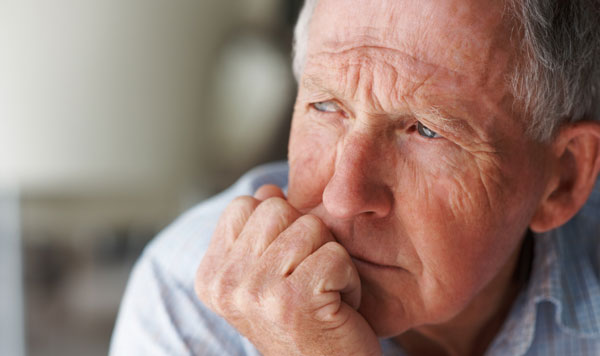What Does Depression Mean for the Elderly?
Depression. It’s one of the most widespread mental health disorders in the country, and perhaps the most quietly devastating. According to the CDC, 18.8 million American adults will suffer from a depressive illness over the course of a year, and though it affects all age groups, symptoms are often overlooked as we approach our golden years. To help us understand what it means to be clinically depressed and how it affects the older adult population, we sought the wisdom of Dr. James Ellison, one of Boston’s Top Docs and the clinical director of Geriatric Psychiatry at McLean Hospital.
Can you define what it means to be clinically depressed, as opposed to other types of low moods?
Clinically depressed means we would assign a diagnosis of depression. Major depressive disorder is distinct from just a low mood, because in addition to a low mood — which has been low for at least a couple of weeks and often times for several months — we also have a disturbance in what we call neurovegitative functions: sleep, appetite, energy, concentration. There is also a different form of clinical depression which is milder and more chronic.
What are some of the major symptoms that might signal clinical depression?
At the core of depression is what is called anhedonia, or the loss of the capacity to enjoy. Clinically, what you can see is that a person becomes withdrawn, irritable, losing interest in things that were important to them — including being with people. Along with that can come sadness, hopelessness.
Depressive symptoms may be more common in older adults than in younger adults, but major depression is actually less frequent in older adults. But depression in older people is often overlooked because it can look somewhat different. In later years, depressed adults can become more irritable or withdrawn, rather than sad or tearful. That misses the opportunity to help somebody.
What are the major causes of depression in older adults?
Depression is in many cases caused by a confluence of factors. A person can be born with a vulnerability to depression, but not everybody is. A person can be stressed to the point where their reaction is to be depressed. Sometimes, people even think that depression is adaptive in that it allows one to conserve energy by withdrawing. Depression can be the result of medicines that a person takes or medical illnesses that a person has. Adverse events like loss of status and loss of friends or spouses can be factors. Also, financial pressures including medical bankruptcy.
What are the most standard treatments for patients with clinical depression today?
Basically, the treatments can involve things that affect lifestyle, treatments that involve talking, or somatic therapies which are divided into the pharmacological therapies — the medicines — and the neurotherapies [e.g. ECT].
What are some of the things that the younger generation, especially those with a family history of depression, can do to help prevent it?
A healthy lifestyle has antidepressant properties. Exercise, not just aerobic, but also resistance training, is a strong antidepressant. Getting enough sleep is very important, and so is maintaining positive relationships and enjoyable events. And spiritually, having a sense of meaning in your life provides some protection against depression.



